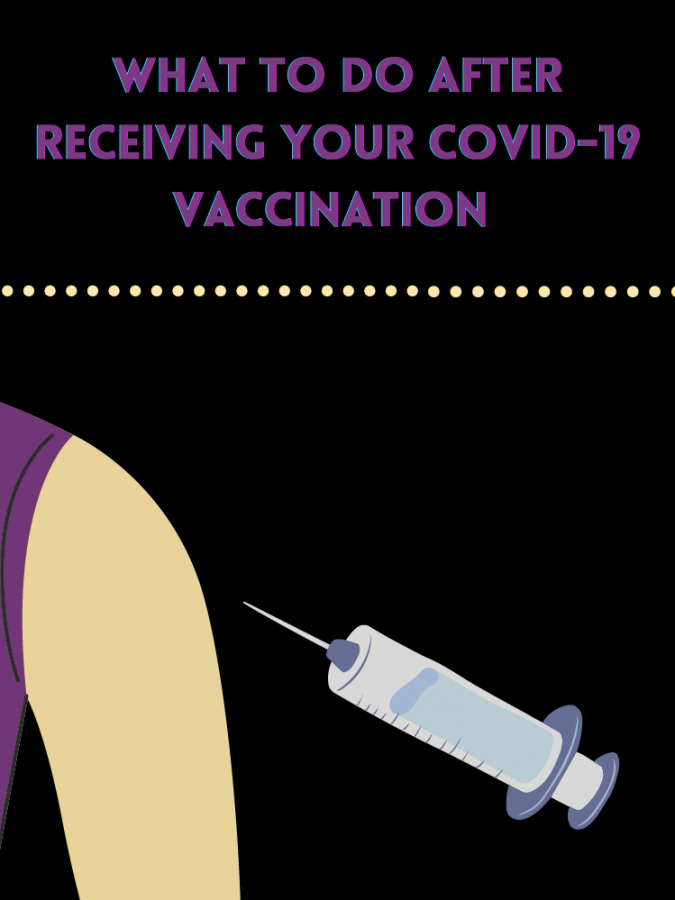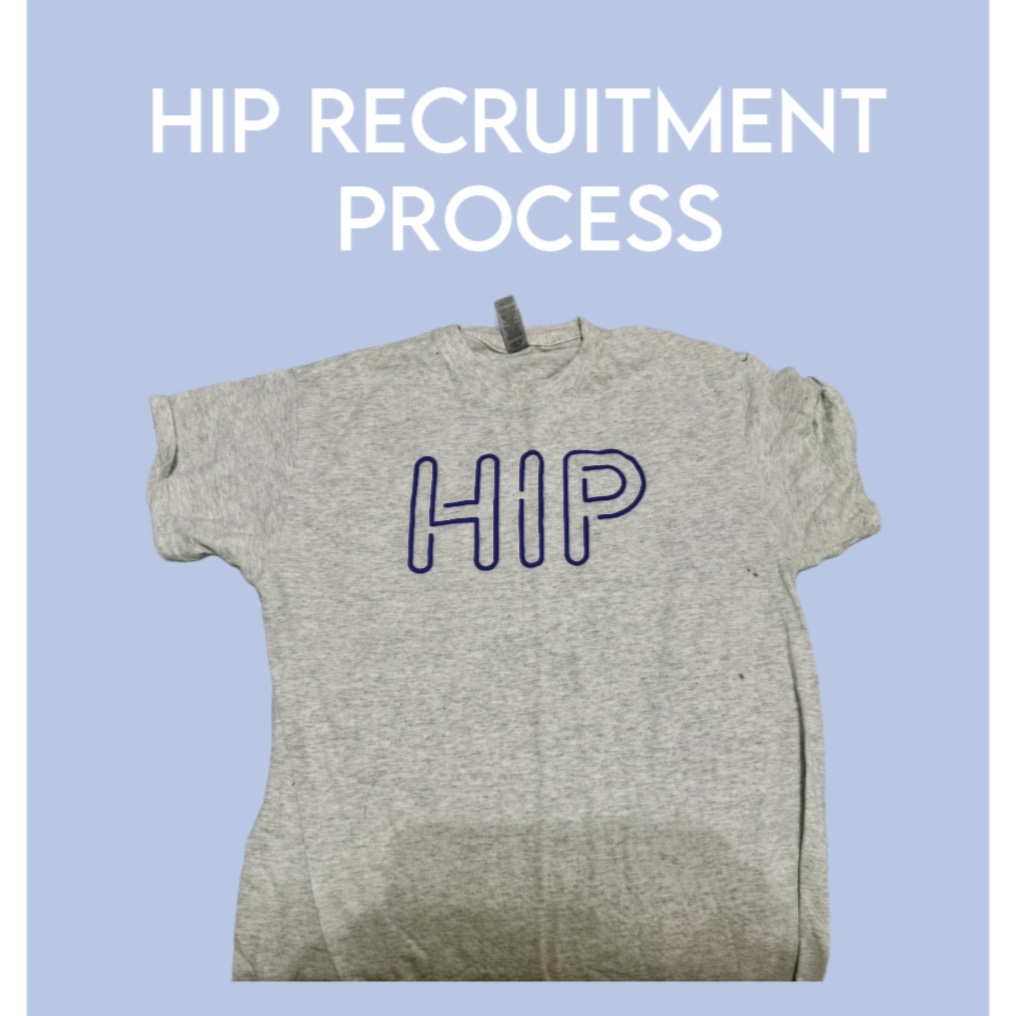What You Can Do After Receiving Your COVID-19 Vaccination
April 21, 2021
On Dec. 14, 2020, a COVID-19 vaccine became available to the public. The companies behind the release, Pfizer Inc. and BioNTech SE, joined forces to help produce the vaccine to combat the worldwide pandemic.
The vaccines, which include Pfizer-BioNTech, Moderna and Johnson & Johnson, have made it around to vaccinate as many people as possibly with around 500,000 vaccines available for distribution.
The first vaccine recipients included healthcare works and long-term care facility residents — considered group 1A. The second group, 1B, included frontline essential workers: firefighters, police officers, United States Postal Service employees and people aged 75 years and older. Not long after, in group 1C, people aged 65 to 74 received access to the vaccines, along with people aged 16-64 years with medical conditions and other essential workers. Now, everyone 16 years of age and older is eligible to receive the COVID-19 vaccination in Florida.

New information has come to light about the Johnson & Johnson vaccine and its potential side effects. Over 6.8 million individuals received the vaccine, with six of these individuals reporting cases of a rare blood clot called cerebral venous sinus thrombosis. The six reported cases all occured in women ranging from ages 18 to 48. They experienced symptoms six to 13 days post-vaccination. While only six people have experienced these unusual side effects so far, the federal government has launched an investigation into the safety of the vaccine.
Although Johnson & Johnson only requires one dose, Pfizer and Moderna require two. After receiving the final, or only vaccine, there are some precautions and helpful tips to help stay protected and reduce the severity or possibility of symptoms.
“After you receive the vaccine, it is most important that you do not immediately retrieve back into pre-pandemic life. You should continue to abide by the COVID-19 guidelines of wearing a mask and socially distancing,” Gulliver Preparatory Academy senior who helps make vaccine appointments available to as many people as possible through #pinecrestkind Lilly Enekes said. “This is because you can still contract the virus and potentially be part of the percentage of people that continue to get ill even after receiving the vaccine or you can be asymptomatic and spread the virus to others around you.”
Enekes completed extensive research on the topic in order to answer any questions people may have while making appointments.
“We [basically just] collect people’s information and keep an eye out at a bunch of different locations (hospitals, pharmacies and pop-ups) for when appointments are available,” Enekes said. “We try to book the people at times and places that are best for them according to their response to our form and answer any questions they may have on the vaccination.”
Some people do indeed experience symptoms. Those symptoms can vary. For some recipients, the arm where they received the shot may feel painful, become red and perhaps even swell. In addition, the rest of the body could feel fatigued. Recipients may also experience symptoms such as headaches, muscle pains, chills, fevers and nausea.
“After the first vaccine, I felt fine. I didn’t have any symptoms, just a little soreness in my arm,” Miami Palmetto Senior High sophomore and vaccine recipient Cooper Josefsberg said. “But after the second vaccine, I had chills and a slight fever along with aches in my whole body.”
While the COVID-19 vaccine is safe and effective, scientists remain unsure of how well the vaccine prevents spreading the virus to others, even if no symptoms occur. That is why people who are fully vaccinated need to continue to take precautions so they do not potentially spread the virus.
Tips from the CDC to help lessen side effects:
- When first receiving the shot, applying a cool, wet washcloth can help soothe the pain.
- Even though it may be hard, moving your arm around after receiving the shot can help relieve soreness.
- If you do get a fever, make sure to drink plenty of fluids and dress lightly.
- You can also take over-the-counter medication such as ibuprofen, aspirin or Advil to help with any pain or discomfort.











